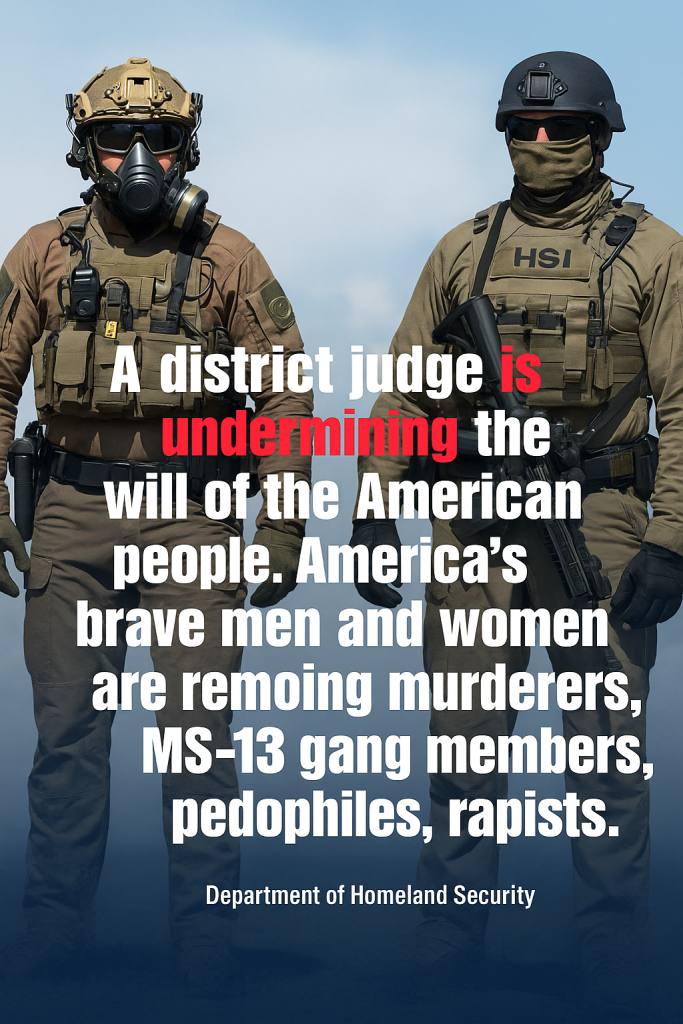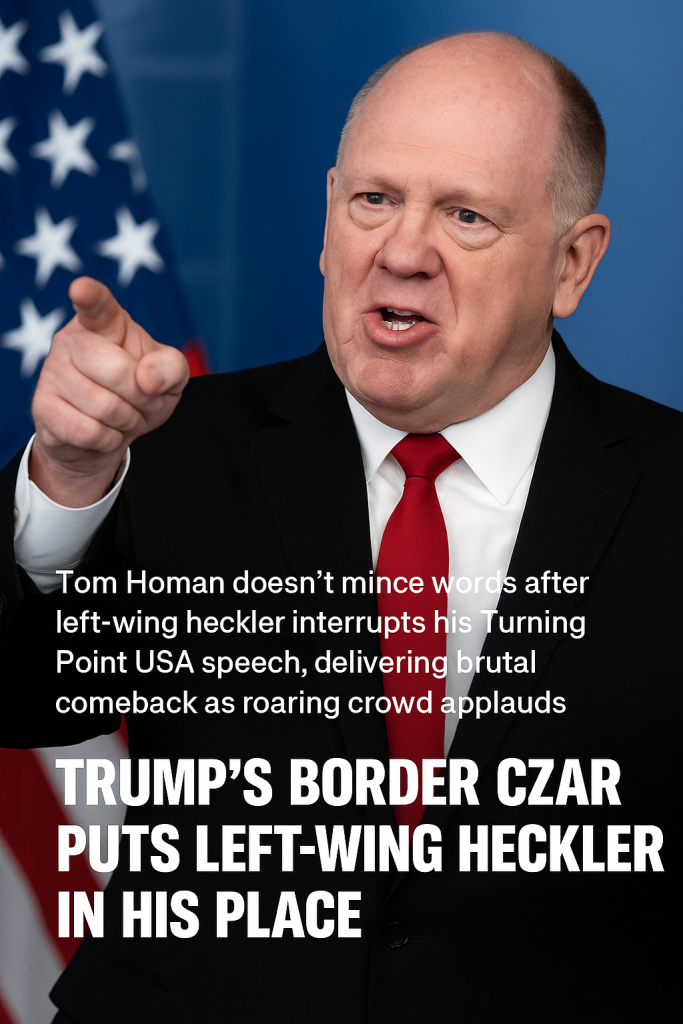The Department of Homeland Security (DHS) has issued a strong condemnation against a recent federal judge’s temporary restraining order (TRO) that limits immigration enforcement actions under former President Donald J. Trump’s policies in California. Labeling the judicial move as undermining “the will of the American people,” DHS emphasized that “law and order will prevail” despite the challenges posed by the court ruling.
This controversy centers on a federal judge’s decision to impose a TRO that restricts the aggressive immigration enforcement efforts championed during the Trump administration. The injunction specifically targets practices aimed at removing undocumented immigrants, including those with criminal backgrounds, from California — a state known for its sanctuary policies and opposition to federal immigration sweeps.
In a statement responding to the court’s action, DHS criticized what it described as a judicial overreach that threatens national security and public safety. The department highlighted the achievements of federal immigration officers who have been focused on deporting “murderers, MS-13 gang members, pedophiles,” and other dangerous individuals. The DHS remarked that these enforcement efforts are crucial for the safety of American communities and that the court ruling imperils those gains.
“A district judge is undermining the will of the American people,” DHS officials stated, referencing public support for robust immigration enforcement measures. They framed the court’s injunction as an obstacle to the broader federal objective of securing the borders and protecting citizens.
California, consistently at odds with federal immigration enforcement policies, has implemented various laws and practices that limit cooperation with federal immigration authorities. The battle between state protections for undocumented immigrants and federal efforts to enforce immigration law has been a flashpoint for years, with the latest court ruling reinforcing tensions.
Legal experts note that temporary restraining orders like this one are often used to maintain the status quo while the underlying legal dispute progresses. However, DHS interprets the TRO as a direct challenge to executive authority and national law enforcement prerogatives. They argue that allowing the restrictions to stand could encourage criminal behavior and hamper removal of individuals who threaten public safety.
Supporters of the TRO argue that it ensures constitutional protections and prevents federal overreach into state policies. Critics, including DHS, see it as judicial interference that halts effective immigration enforcement and endangers Americans.
This clash reflects the broader national debate on immigration enforcement, the balance of state versus federal powers, and approaches to public safety. The DHS’s firm stance proclaims an ongoing commitment to enforcement despite judicial setbacks, signaling that legal battles are far from over.
As the legal conflict continues, it remains to be seen how courts will ultimately rule on the federal government’s authority to carry out immigration enforcement in sanctuary states like California. Meanwhile, DHS’s messaging underscores a tough, uncompromising approach that it insists is necessary to uphold “law and order” amidst increasing political and legal resistance.



